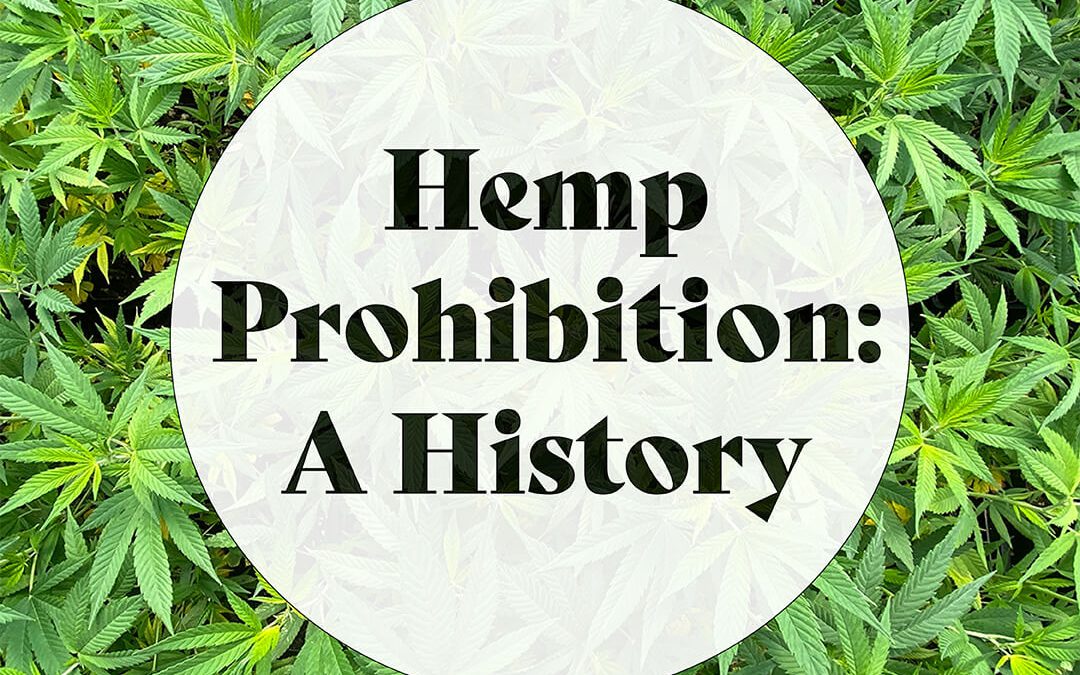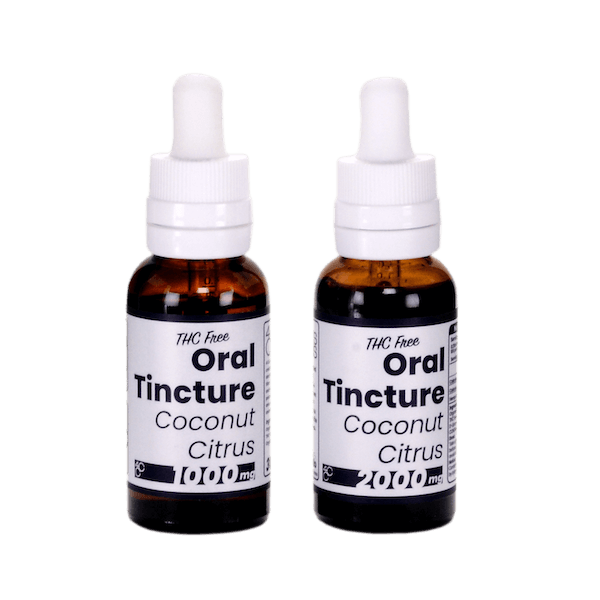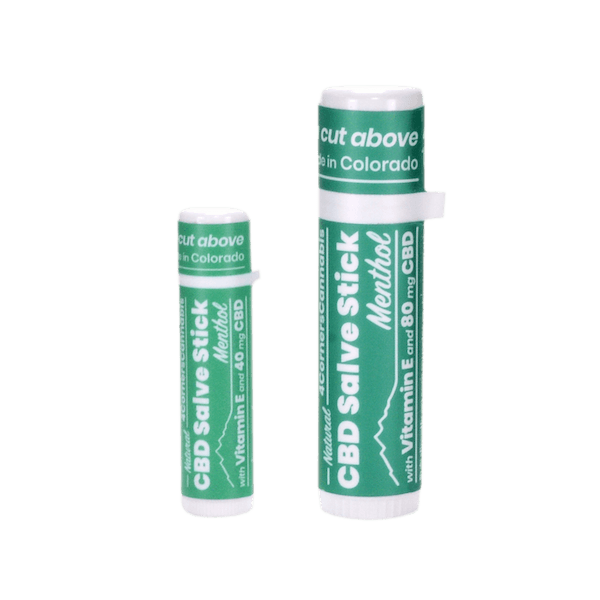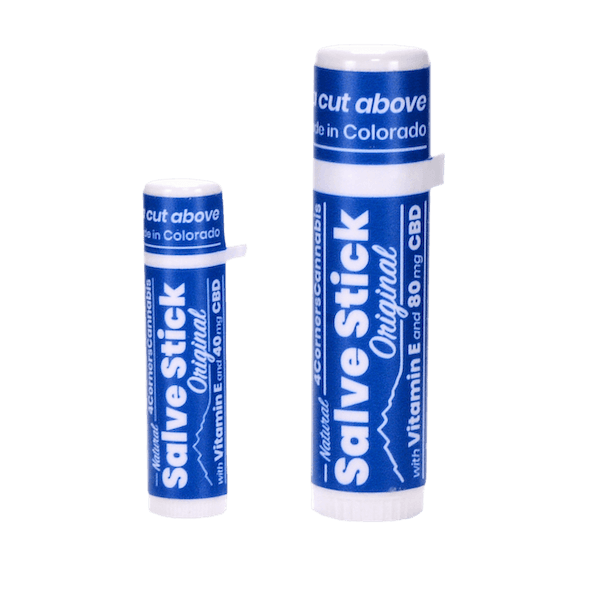Cannabis has been an integral part of the story of humanity over the past several thousand years. We can hardly count the ways in which the use of hemp benefits us. It functions as medicine, food, and an extremely versatile industrial commodity. Somehow, though, there was a considerable 75-year gap where almost no one was growing it!
The history of hemp prohibition in the United States begins with a tax act in 1937 and finally became a thing of the past thanks to the Farm Bill of 2014 and 2018. The years between are filled with bad information, private interest groups, and legislation that kept hemp and CBD products out of the general public’s hands.
THE HISTORY OF HEMP PROHIBITION
Up until 1937 there was no legislation or regulations on a National level for the growing of either hemp or marijuana. Part of the problems began when hemp was lumped into the same group with marijuana, and it would take 75 years before the two were regarded independently again, as they should be.
The Hiatus in Hemp Farming
In spite of all we knew we could do with this amazing plant, from 1937 to 2014, there were a healthy handful of hurdles to jump for anyone who wanted to grow hemp. This began in 1937 with the “Marihuana Tax Act”. According to one U.S. Legal selection on the topic, this legislation imposed a tax on the sale of all marijuana and hemp. Prior to this, many people knew how great hemp was, but that knowledge was slowly lost over time.
The “Marihuana Tax Act” of 1937
The act didn’t technically criminalize the possession or usage of marijuana or hemp. It just created a bureaucratic nightmare for anyone who wanted to grow and sell cannabis of any kind. This effectively snuffed out the industry. Environmental costs of other crops were taken on by farmers rather than legal costs of hemp. Here’s roughly how the process went if you did choose to farm hemp:
- Anyone who sells, deals in, dispenses, or gives away cannabis must register with the IRS and pay a special occupational tax
- Before the transfer of any cannabis, the person receiving it must obtain a written order from the regulatory body to whom they pay a required “transfer tax”.
- This written order must contain specific information about the buyer, seller, amount of cannabis to be transferred, etc.
- A copy of this document must be provided for the IRS, the buyer, and the original kept by the seller.
- These documents are open to inspection by state and federal law enforcement at any time.
That may not sound all that absurd, but that’s not all. We must also take into account that even the smallest violation of any stipulation of the Marihuana Tax Act could result in a $2,000 fine and up to 5 years in prison. And back then $2,000 was a very large sum, roughly equivalent to the value of $35,500 today. Although the government ultimately illegalized the growing of hemp, this policy did a lot of the leg work. The existing powers eliminated the hemp farming industry by simply creating an extremely convoluted process with substantial associated risks. Why get rid of one of the best crops in history though? Who stood to gain anything from hemp prohibition? Was this the end of hemp?
Industries That Benefitted From Hemp Prohibition
The US government likely had no problem with the use of hemp, especially non-psychoactive hemp. However, it’s likely that economically influential people had politically influential friends lending them a hand in exchange for remuneration of some type.
Hemp plants can replace or give reasonable alternatives to many materials that are not quite obvious. The money behind these industries thus had plenty of motivation to keep hemp farming to a minimum, regardless if it was being used for medicinal or other means.
In their article Why was Hemp Outlawed in the United States?, the folks at Green Life Organics maintain that the primary push for squeezing industrial cannabis out of the market came at quite an environmental cost from three industries: Cotton, timber, and synthetic plastics.
The Synthetic Plastics industry
This item from the list is easily the most regrettable. It only took several decades to see the detrimental effects of plastic on the future of the planet. We only now see the widespread use of more biodegradable or reusable alternatives… over 75 years later!
The Cotton industry
The cotton debacle is unfortunate because of how poorly it stacks up against hemp from an environmental perspective. Hemp makes stronger, more durable, more absorbent, and more insulative fiber than cotton. It also generally requires far fewer pesticides, far less water, and produces a far greater yield per acre.
Hemp even makes the soil it’s grown in healthier, while cotton depletes the soil it’s grown in. Still, cotton reigns supreme as a source of fiber for clothes. It will be interesting to see if that is still the case in five years’ time.
The Timber industry
Even the timber industry has pitfalls that hemp seems to answer. Hemp can grow and produce yields far more quickly than trees, and by quite a considerable factor as well. You’re looking at a 100-day turnaround for hemp to mature and become usable, versus a 50-100 year turnaround for trees to do the same.
The folks at Way of Leaf add this major tidbit. Hemp is lighter, stronger, and less expensive than timber, and requires smaller acreages to produce adequate quantities. In essence, we can have the best of both worlds, gathering what we need from hemp while saving the forest.
Dubious motives
We know that cannabis is not the detriment to society that it was made out to be around the time that the 1937 Marihuana Tax Act was passed. In fact, hemp embodies the complete opposite, making its prohibition even weirder. It got grouped in with marijuana around this time. This meant that it took on all of the same stigmas, along with the illusion of “the devil’s weed with roots in hell”.
Beyond the fire and brimstone proselytizing against cannabis, Prima.com article History of Hemp: Where and When It all Began states that there was a cultural motivation for some of this extreme legislation as well. The author shares that until the early 1900s, virtually all people called the plant “cannabis”.
It was around this time that the word “marihuana” replaced the other word though, even in reference to hemp, as a way to associate the plant with the Mexican-American population. Associating hemp with psychoactive cannabis and giving it a spanish moniker gave unethical law enforcement the false pretext they needed in order to search and deport Mexican immigrants.
The 1980’s also saw the “War on Drugs” heat up, with marijuana especially targeted as being a “gateway drug” that led young people to more dangerous and addictive substances. During this time, arrests for drug-related crimes skyrocketed. This furthered the stigma against all cannabis products including marijuana and hemp.
Lawmakers double down
If it wasn’t enough that hemp was already being grouped in with marijuana, they got collectively thrown into the Controlled Substance Act of 1970. This marked the true “outlawing” of hemp, and lawmakers would keep it that way for 44 years. According to the dea.gov page pertaining to the Controlled Substance Act, items are added based on the assessment of the following:
- Its actual or relative potential for abuse.
- Scientific evidence of its pharmacological effect, if known.
- The state of current scientific knowledge regarding the drug or other substance.
- Its history and current pattern of abuse.
- The scope, duration, and significance of abuse.
- What, if any, risk there is to the public health.
- Its psychic or physiological dependence liability.
- Whether the substance is an immediate precursor of a substance already controlled under this subchapter.
Based on these criteria, we’re glad to see that hemp was ultimately removed from the list. It does not belong side by side with the narcotics, stimulants, depressants, hallucinogens, anabolic steroids, and various synthetic chemicals. It just doesn’t fit the bill.
The Fallout of Hemp Prohibition
So from the Marihuana Tax Act passed in 1937 until only recently, inferior crops were given preference over hemp. They were allowed to flourish in spite of their evident shortcomings and the environmental costs. All of the false rhetoric and lore surrounding cannabis was also allowed to thrive, not only giving marijuana an unnecessarily bad rap, but giving hemp a counterintuitive and utterly misleading bad reputation.
On top of that reputation, legitimate immigrants and legitimate farmers were unduly punished for growing or dealing in hemp in any way. The existing structure made it nearly impossible to farm hemp or advance that industry in any way whatsoever.
THE FARM BILL
Fast-forwarding to 2014, The Farm Bill was implemented, allowing the start of pilot research programs, and distinguishing hemp from marijuana based on the percentage of THC in the plant. Legally, hemp is separated from other cannabis strains and is classified as any plant that has less than 0.3% THC content.
In theory, the THC content is an indicator of the intentions of a grower to use the plant for recreation/medicine or to use it for industrial means. When The Farm Bill was updated in 2018, hemp and hemp derivatives were finally removed from the Controlled Substances Act, where they clearly shouldn’t have been to begin with.
Many argue about where the threshold of THC should be, but the key is that there is a distinction between the two, allowing both industries to thrive and progress in their own way, for their own reasons.
Final Thoughts on Hemp Prohibition
The Farm Bill paved the way for the current CBD movement to pick up steam and come into its own, and what allowed 4 Corners Cannabis to become the company it is today. Luckily, legislation regarding cannabis products seems to be loosening, not tightening, allowing more research, products, and reach for the general public to benefit from!




